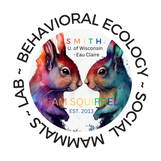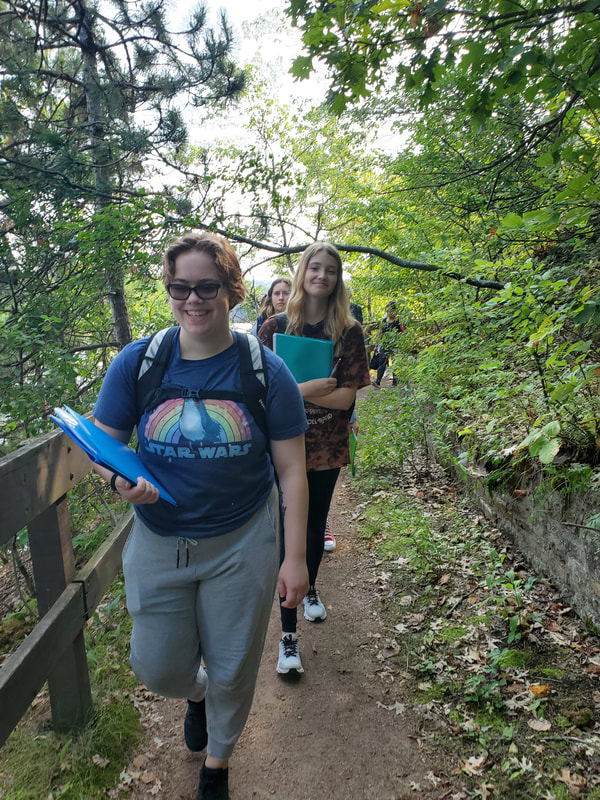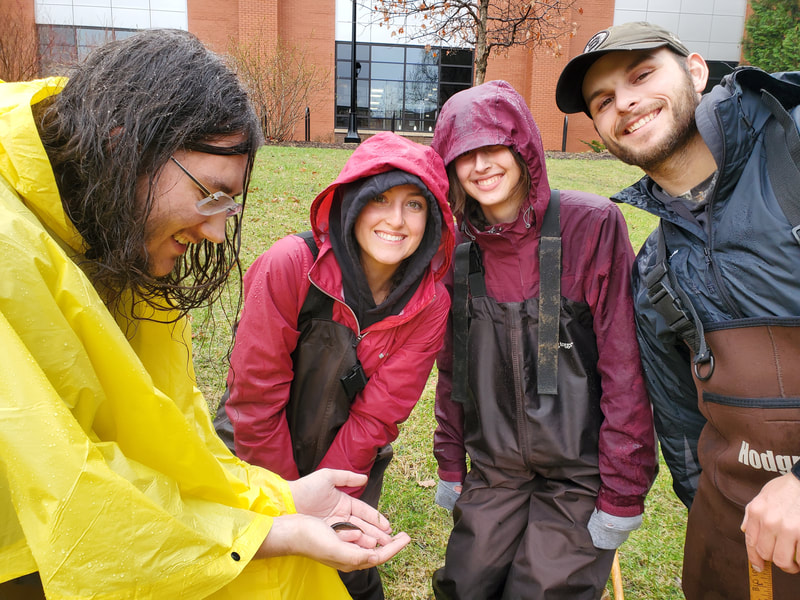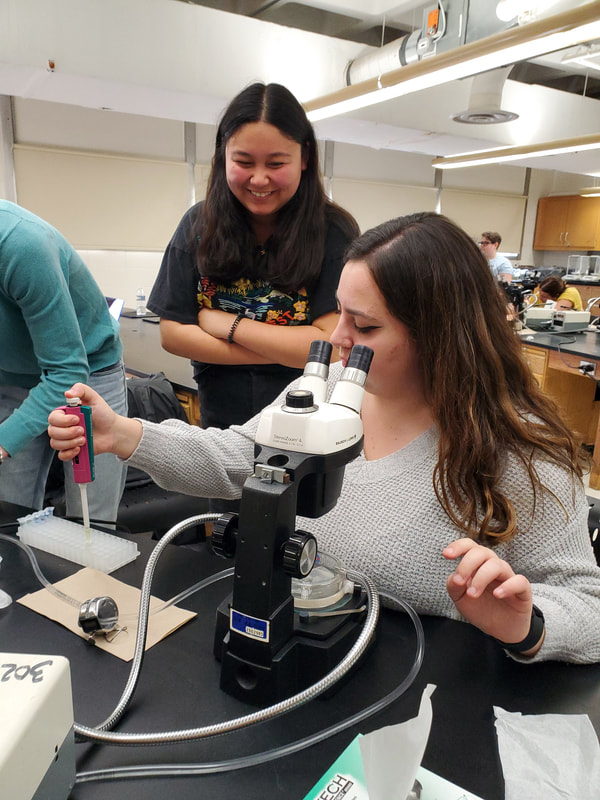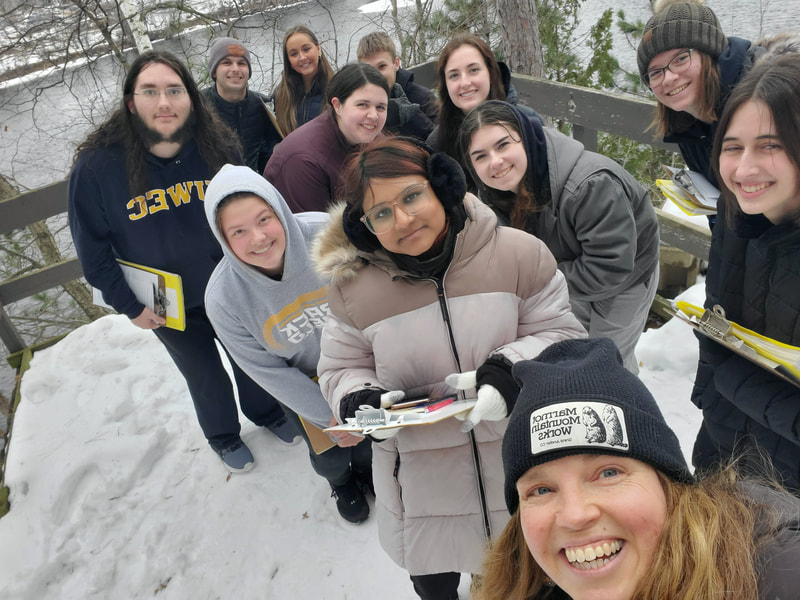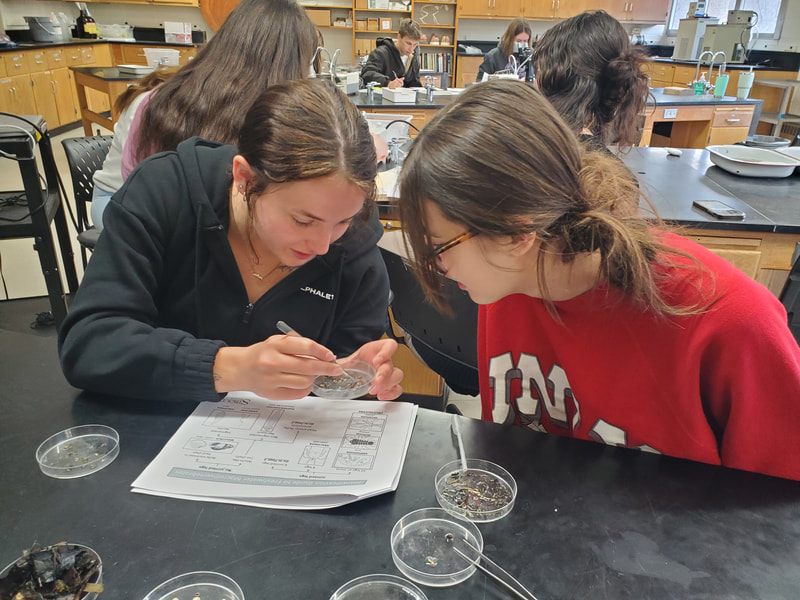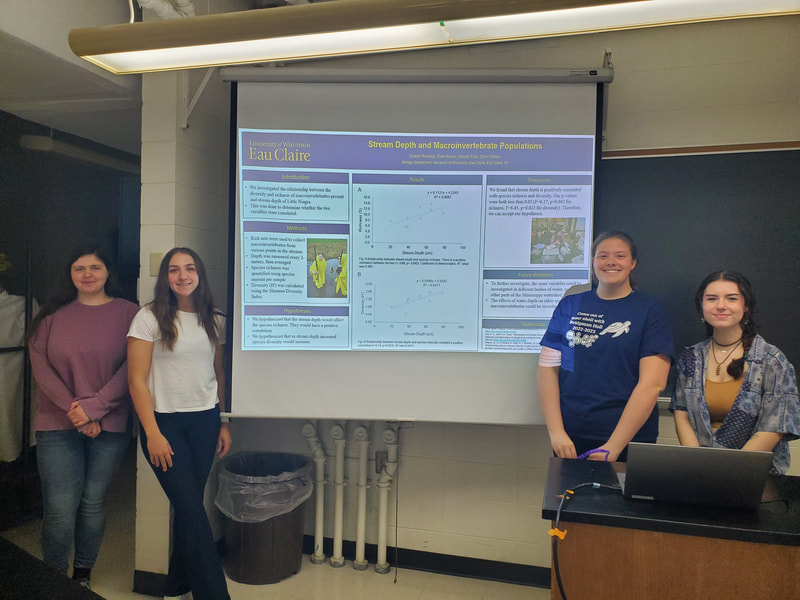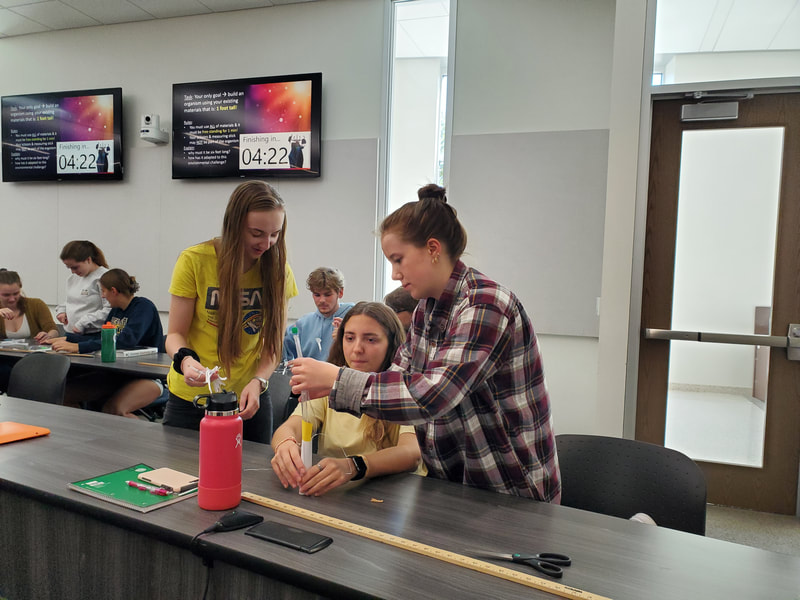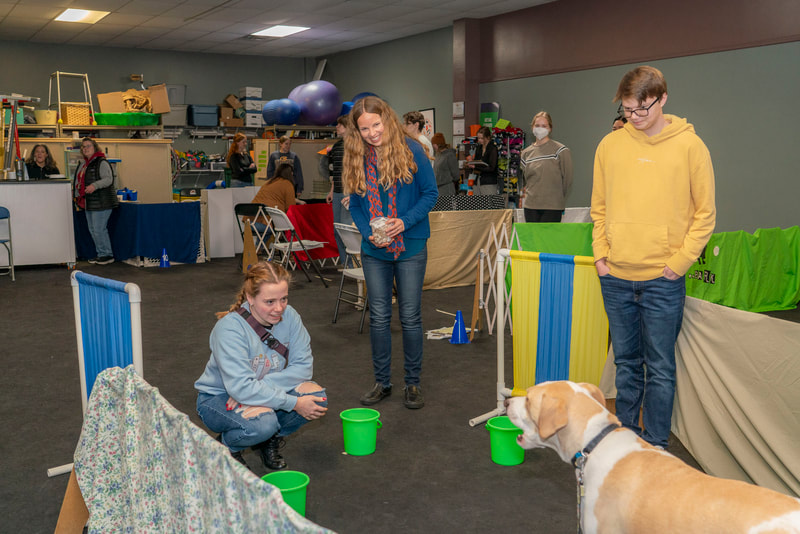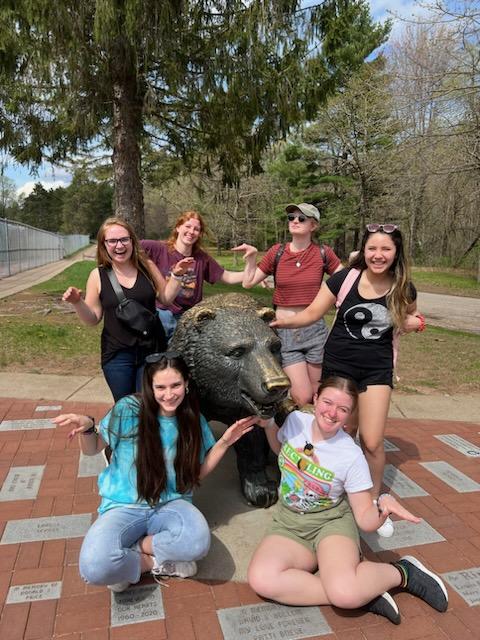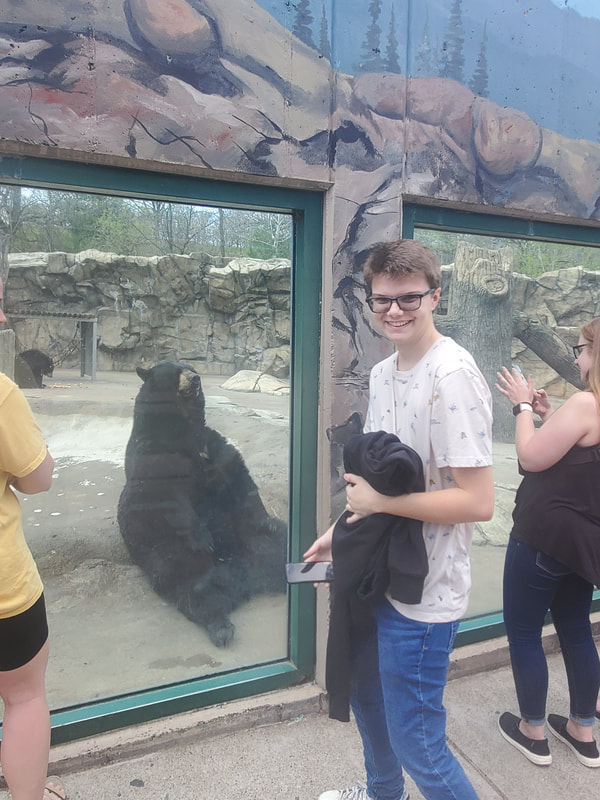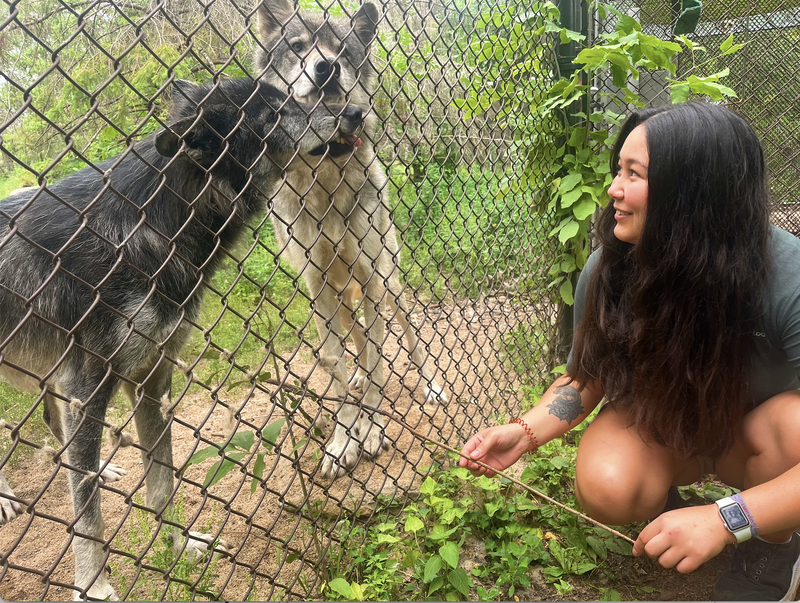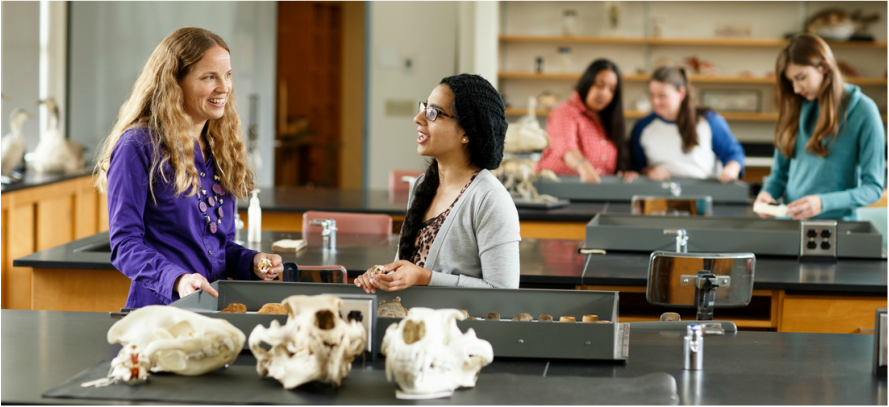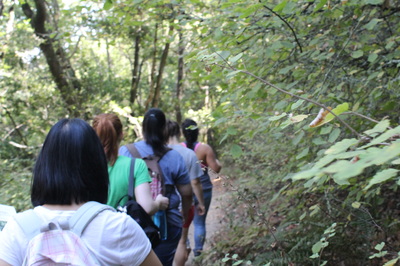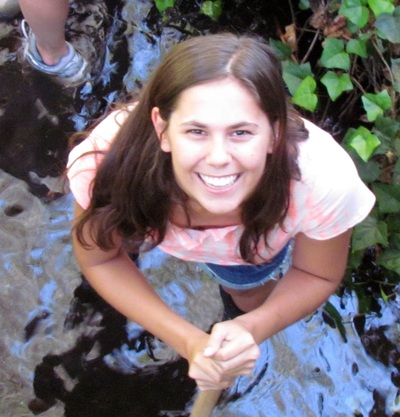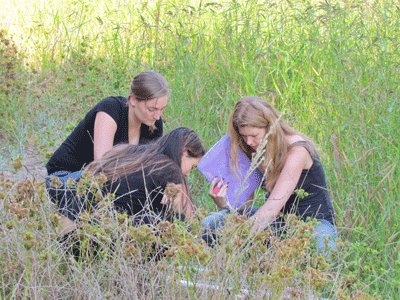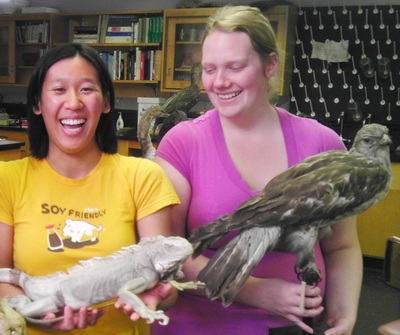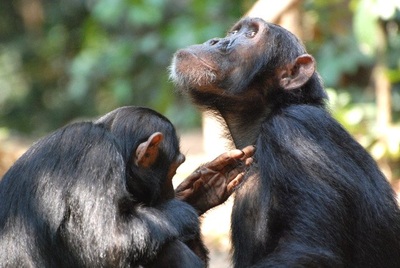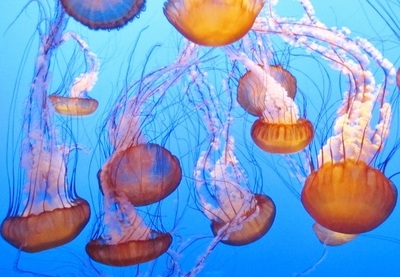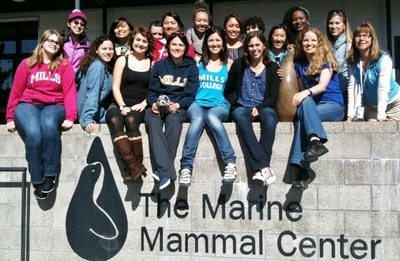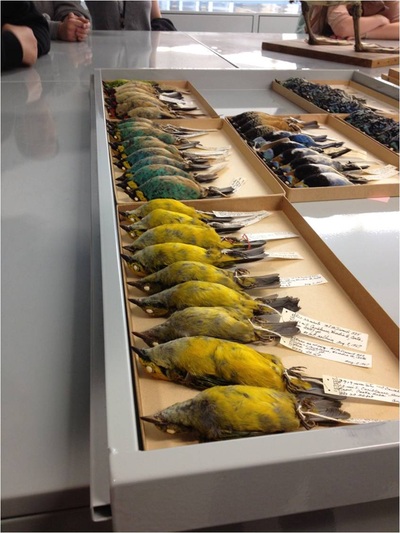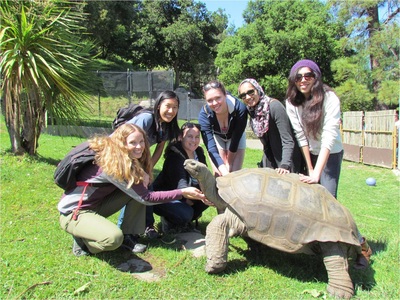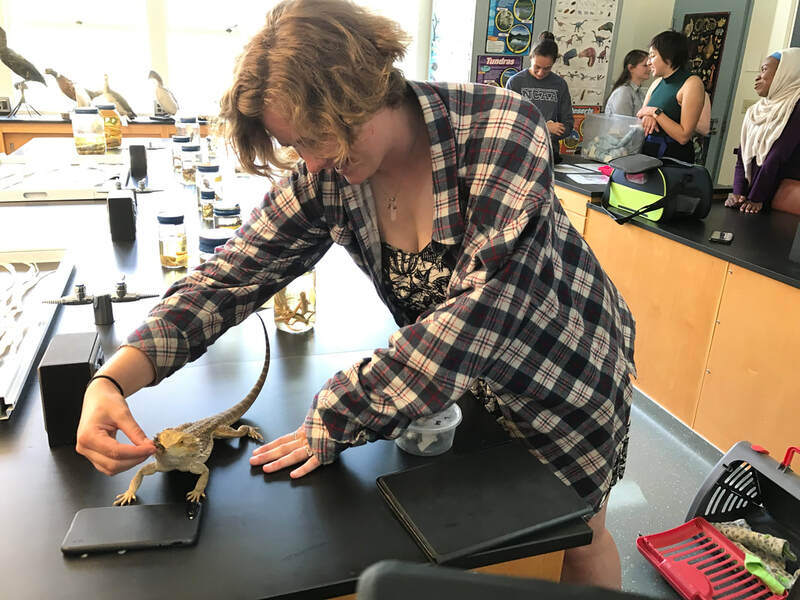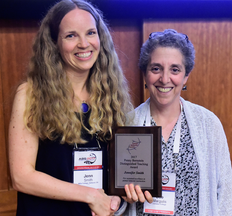
Recognition & Awards for Excellence in Teaching
- Jill Barrett Undergraduate Research Program in Biology named by Inspiring Programs in STEM AWARD from INSIGHT Into Diversity magazine
- Penny Bernstein Distinguished Teaching Award, Career Award for Sustained Excellence in Teaching from the Animal Behavior Society (one per year)
- Phi Beta Kappa Laureate for Teaching Excellence in the Liberal Arts
- Student newspaper voices enthusiasm for new courses in article, "Professor introduces classes, energizes department"
- Diversity Program for Innovative Courses, Office of Undergraduate Education and Diversity & Faculty Development, University of California Los Angeles (UCLA); 4 annual awards
- Excellence-in-Teaching Citation, Office of the Provost, Michigan State University; 6 awards out of 47K students
- Excellence-in-Teaching Citation, College of Natural Science, Michigan State University
- Recognized for Commitment to Student Learning, Undergraduate Student Affairs, MSU
- Future Academic Scholars in Teaching Fellowship, MSU
University of Wisconsin - Eau Claire (2022-present)
BIOL 223: Foundations of Biological Inquiry (every year)
Introduction to inquiry methods in biology focusing on scientific methods including experimental design, data collection and analysis, and critical thinking. Course-embedded research projects vary by semester.
Introduction to inquiry methods in biology focusing on scientific methods including experimental design, data collection and analysis, and critical thinking. Course-embedded research projects vary by semester.
BIOL 321: Ecology (every year)
Core concepts and theories in ecology at the individual, population, community, and ecosystems levels and their applications. Lecture only class includes hands-on activities, computer simulations, and discussion.
Core concepts and theories in ecology at the individual, population, community, and ecosystems levels and their applications. Lecture only class includes hands-on activities, computer simulations, and discussion.
BIOL 365: Animal Behavior (w/lab)
Study of animal behavior with emphasis on evolutionary approaches; topics include feeding adaptations, predator-prey interactions, habitat selection, communication, sociality, and mating strategies. Students work together on lab/field exercises and conduct a semi-independent research project of their choice. The entire class also participates in weekly student-led discussions and course-embedded research on cognition in domestic dogs at emBARK.
Study of animal behavior with emphasis on evolutionary approaches; topics include feeding adaptations, predator-prey interactions, habitat selection, communication, sociality, and mating strategies. Students work together on lab/field exercises and conduct a semi-independent research project of their choice. The entire class also participates in weekly student-led discussions and course-embedded research on cognition in domestic dogs at emBARK.
Mills College in Oakland, California (2012-2022)
BIO 125: Principles of Ecology (every year)
This course introduces students to the levels of ecological organization from individuals, populations, communities and ecosystems to the biosphere as a whole. Course-embedded research is a major aspect of the course. Student engage in semester long research projects conducting field research of their own design.
This course introduces students to the levels of ecological organization from individuals, populations, communities and ecosystems to the biosphere as a whole. Course-embedded research is a major aspect of the course. Student engage in semester long research projects conducting field research of their own design.
BIO 144: Animal Behavior (every year)
This course introduces students to fundamental principles of animal behavior by exploring Niko Tinbergen’s four levels of analysis to understand the: 1) development, 2) mechanisms, 3) ecology, and 4) evolution of behavior. By the end of the course, students will possess the tools required to devise testable hypotheses to understand HOW and WHY animals behave in the ways in which they do. Students discuss the primary literature, observe local wildlife and test hypotheses by carrying on behavioral tests on domestic dogs.
This course introduces students to fundamental principles of animal behavior by exploring Niko Tinbergen’s four levels of analysis to understand the: 1) development, 2) mechanisms, 3) ecology, and 4) evolution of behavior. By the end of the course, students will possess the tools required to devise testable hypotheses to understand HOW and WHY animals behave in the ways in which they do. Students discuss the primary literature, observe local wildlife and test hypotheses by carrying on behavioral tests on domestic dogs.
BIO 158 Marine Biology (w/lab) (every other year)
This course introduces students to the study of marine biology, with an emphasis on evolutionary adaptations to the marine environment and the ecological interactions among marine organisms with their habitats and interactions with each other/their environment. Communities studied will include coral reefs, deep sea benthos, plankton, nekton, and intertidal assemblages. The courses challenges students to develop critical thinking skills used by marine biologists to study marine biology and to tackle pressing issues of marine conservation. We rely heavily upon hands-on learning during field trips to local habitats and discussion of the primary literature.
This course introduces students to the study of marine biology, with an emphasis on evolutionary adaptations to the marine environment and the ecological interactions among marine organisms with their habitats and interactions with each other/their environment. Communities studied will include coral reefs, deep sea benthos, plankton, nekton, and intertidal assemblages. The courses challenges students to develop critical thinking skills used by marine biologists to study marine biology and to tackle pressing issues of marine conservation. We rely heavily upon hands-on learning during field trips to local habitats and discussion of the primary literature.
BIO 161 Vertebrate Biology (w/lab) (every other year)
This course explores the anatomy, physiology, behavior, evolution, ecology, and natural history of various classes of vertebrates. In class, students discuss recent developments in the literature regarding these topics. The lab challenges students to apply these concepts through hands-on learning at local field sites in the Bay Area and through exploration of convergent and divergent features of the specimens in our museum collection at Mills College.
This course explores the anatomy, physiology, behavior, evolution, ecology, and natural history of various classes of vertebrates. In class, students discuss recent developments in the literature regarding these topics. The lab challenges students to apply these concepts through hands-on learning at local field sites in the Bay Area and through exploration of convergent and divergent features of the specimens in our museum collection at Mills College.
